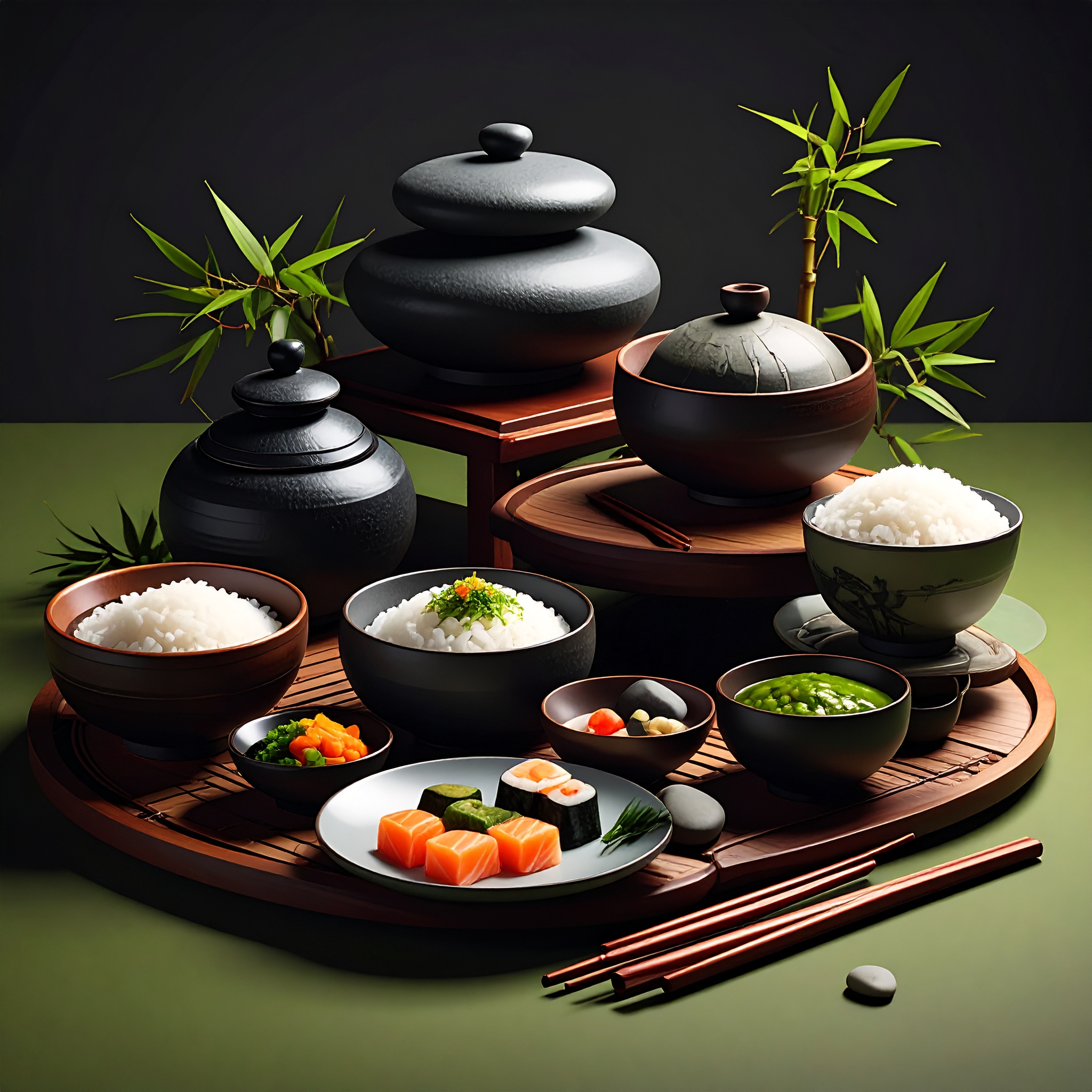In the pursuit of inner equilibrium, food is often overlooked. While practices such as meditation, breathwork, and posture are frequently cited as central to Zen, dining is in fact a profound act of spiritual discipline, deeply rooted in Zen philosophy. In the Zen tradition, eating is not merely about satiating hunger or obtaining nutrition—it is an intentional encounter with life in its most immediate form. It is here that the aesthetic of subtraction comes into play: in silence, every flavor and gesture is refined, revealing their purest expression.
In Zen temples, meals are overseen by a monk called the tenzo, meaning “dining hall master.” The tenzo’s responsibility extends beyond cooking—they embody spiritual discipline through food. Observing the changing seasons and respecting the vitality of ingredients, the tenzo crafts dishes that embody the moment. Central to this process is not adding more, but subtracting what isn’t needed.
In Zen dining, ingredients are treated in their most unaltered state, and seasoning is restrained to a bare minimum. Only the essentials—salt, soy sauce, miso, and vinegar—are utilized, while oils and spices are employed with extreme discretion. The goal is not to overwhelm but to honor the natural aroma and texture of each ingredient. By stripping away excess preparation, the intrinsic richness of the food is quietly revealed, inviting the diner to attune to the subtle nuances that emerge with each bite.
During Zen meals, conversation falls silent, sounds are hushed, and the chopsticks move gently and deliberately. Eating in quietude is not merely about focusing on the food—it becomes a moment of deep self-reflection. A bowl of miso soup before you, tender greens simply boiled in salt, a single bite of rice—each is a tangible expression of the present moment. How one receives and honours these simple elements embodies the true practice of Zen.

In this style of dining, meals often begin with the chant known as Gokan-no-ge—a verse reflecting five mindful perspectives: gratitude for the ingredients, self-examination, restraint from indulgence, cultivation of awareness, and harmonization of body and mind. This chant transforms eating from a routine activity into a spiritual ritual of receiving, recognizing that each ingredient represents life, and that preparing food is a profound responsibility.
What is commonly referred to as shōjin-ryōri (Zen vegetarian cuisine) transcends mere abstention from animal products. Shōjin literally means “wholehearted effort.” Every step—from peeling vegetables to reusing broth ingredients like kelp and shiitake mushroom in subsequent dishes—is approached with care. This practice not only honors resources, but also embodies Zen’s teaching of awareness, teaching us to reflect on the impact of our actions.
Even the selection of tableware holds meaning. Simple, tactile pieces crafted from clay or wood, with subdued tones, promote a sense of unity with nature. Arrangements avoid excessive decoration and maintain space and balance. Each movement—raising a bowl, reaching for chopsticks—is performed without sound or waste. These actions mirror the state of the mind itself.
The Zen principle of “one soup, one dish” further exemplifies this philosophy of subtraction. A meal of rice, a simple soup, and a single side dish encourages restraint and discourages overindulgence. The ideal is not fullness, but well-balanced sufficiency—a practice in moderation that maintains harmony between body and mind.

In our modern lives, meals are often driven by convenience and efficiency, favoring bold flavors and large portions. Amid information overload and constant stimulation, even the simple act of eating can become unconscious consumption. In contrast, Zen dining invites us to return to the essence of eating—a recalibration of body and mind.
This is reflected in the growing interest in temple stays with morning Zen meals, shōjin‑ryōri experiences, and silent dining workshops. These reflect a deep modern yearning for quiet and presence. Eating becomes an entry point to stillness: to sense the present through taste, appreciate each ingredient, and bring awareness back to the act itself. This, indeed, is eating as Zen practice.
Zen and food share the cultural value of knowing sufficiency. In an age of excess, the satisfaction found through subtraction becomes even more profound. To notice a single grain of salt, a subtle aroma, a gentle texture is to consciously taste the experience of living.
A single bowl in silence—the taste of the ingredient, the whisper of your heartbeat, the sense that you are being nourished. Zen dining leads us to a moment of encounter with ourselves and a fundamental embrace of the present.




